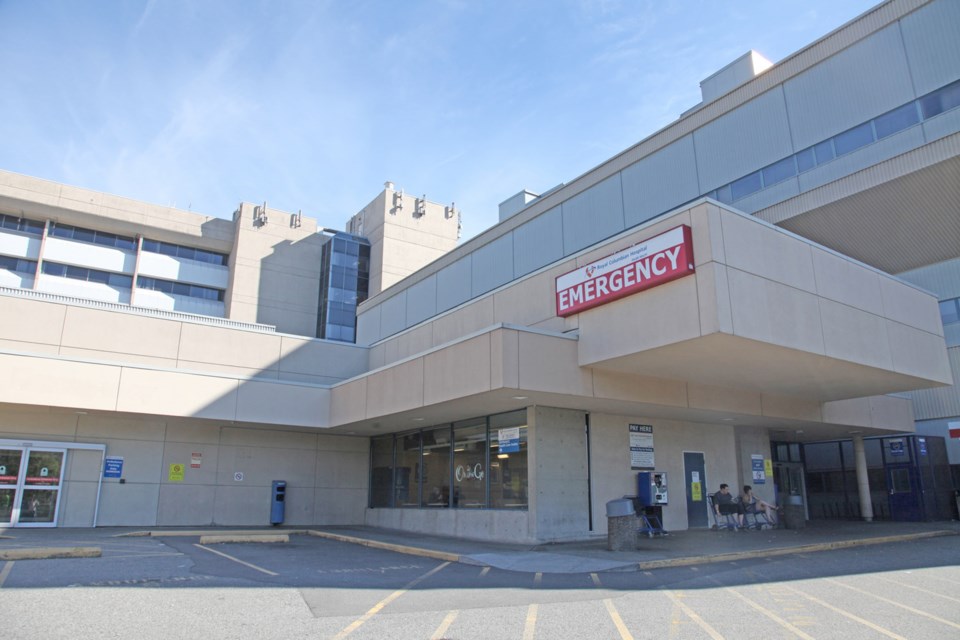Royal Columbian Hospital is still welcoming visitors in the face of an outbreak of bacteria resistant to one of the "last-resort antibiotics" in health care.
Fraser Health has announced an outbreak of CPE (carbapenemase-producing enterobacteriaceae) in one medical unit at the New Westminster hospital. The hospital has separated patients found to be colonized with the bacteria, providing them with dedicated staff and equipment. Health-care workers use gowns and gloves during care of colonized patients.
Dr. Elizabeth Brodkin, executive medical director for infection prevention and control at Fraser Health, said the health region has been anticipating the arrival of the bacteria for some time.
She said the bacteria has shown up in other parts of the world, including places where local residents have strong ties. A Fraser Health backgrounder notes that the bacteria is endemic to South Asia, as well as to some parts of the United States and Greece.
"It was inevitable that we would see this in British Columbia, and particularly in Fraser Health," Brodkin said, in a video interview provided by Fraser Health. "We knew it was just a matter of time before we began seeing it."
To reduce the risk of its spread, Fraser Health is now screening all patients admitted into hospital, including asking them whether they have been admitted into a hospital or received renal dialysis outside of Canada in the past six months. Anyone who has is then tested for CPE.
Brodkin said an outbreak is defined as "sustained transmission of a bacteria or a virus" that does not come under control promptly with appropriate control measures.
The outbreak was declared at Royal Columbian because its spread has not been slowed down as quickly as anticipated.
As with many other such bacteria, CPE does not make every person sick. It is quite possible for a person to carry the bacteria in their intestinal tract without symptoms. However, in those who already have compromised immune systems, it can spread to other locations - such as the lungs or bladder - and cause an infection.
"Some of the patients who come here are very sick, and sick patients are more likely to become colonized with this bacteria," Brodkin pointed out.
The challenge with CPE, Brodkin said, is that the antibiotic it is resistant to is one of the "last-resort antibiotics" and used when other options have not worked.
She said it will be at least another month before Fraser Health will be able to declare the outbreak over, because CPE is slow to colonize.
"We will not declare it over until we are quite certain that all transmission has stopped, and that will take at least a month," she said.
In the meantime, visitors are welcome but are being asked to practice "really good hand hygiene" to help keep both visitors and patients safe.
And Brodkin said Fraser Health wants to assure patients and families that they shouldn't worry about the safety of the hospital.
"Royal Columbian is a very safe place to receive care," she said.
****
TIPS FOR HELPING TO PREVENT THE SPREAD OF CPE
* Inform your health-care professionals if you've had a medical procedure done recently while travelling to another country
* Wash hands often, especially after going to the bathroom and before preparing and eating food
* Do not share personal care items such as towels, toothbrushes or bars of soap.
* Clean bathrooms and other frequently touched surfaces, such as light switches and water taps) once per day, or more often if visibly soiled
* Wash non-disposable cleaning cloths after each use.
* Keep clean dressings on open, draining wounds.
(courtesy of Fraser Health)



